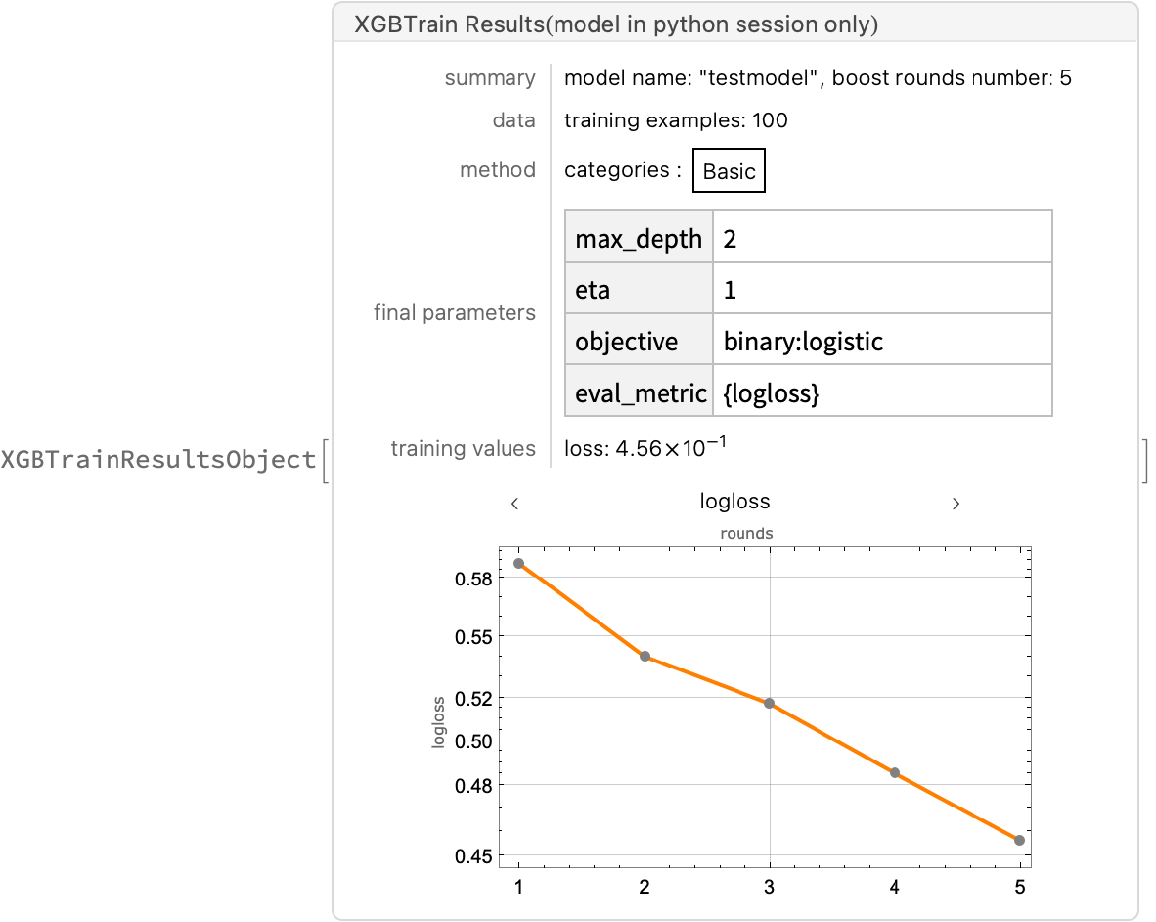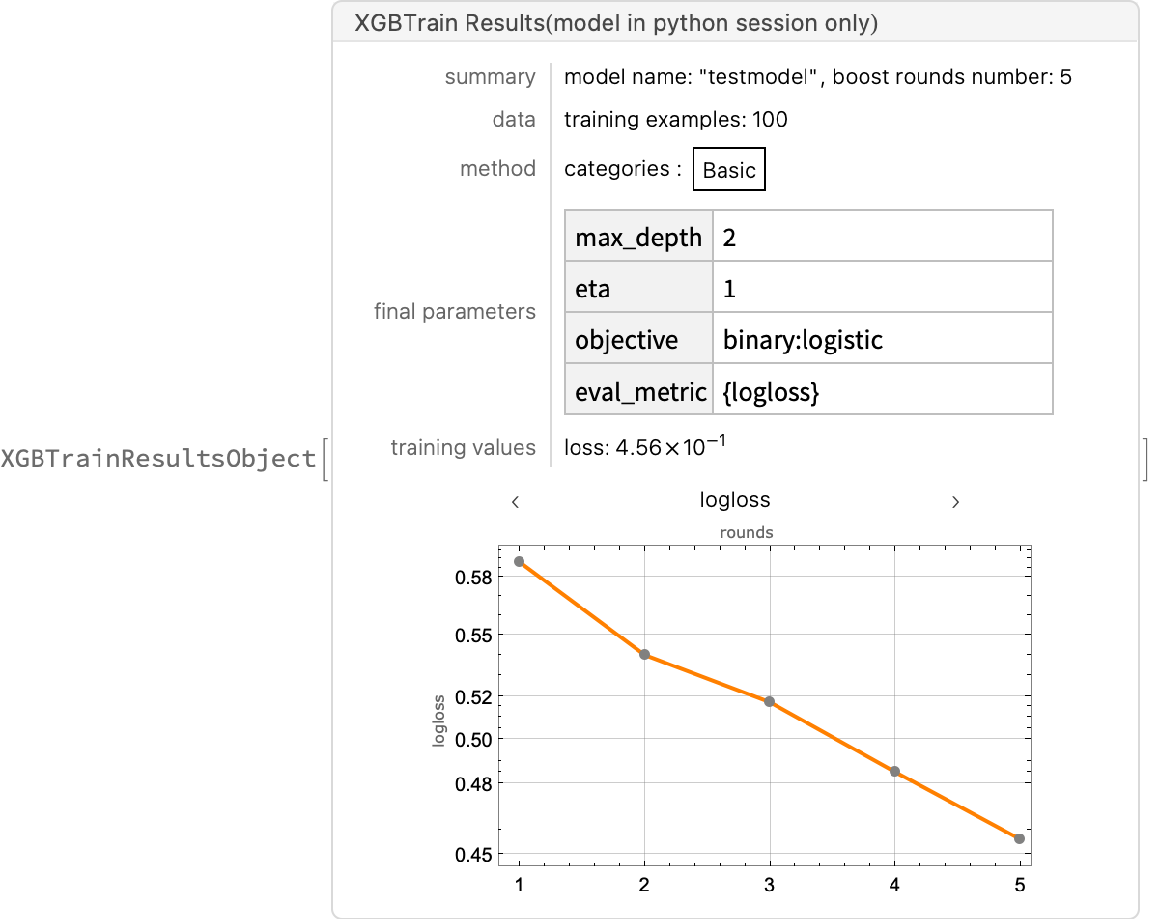Wolfram Language Paclet Repository
Community-contributed installable additions to the Wolfram Language
This paclet utilizes XGBoost algorithm in Wolfram Language
Contributed by: Mike Yeh
In this paclet, we provide Wolfram Language functions for implementing XGBoost python functions, e.g., xgb.DMatrix(), xgb.train(), and predict(). So far we have XgbTrain[] to implement xgb.train() and XgbModelPredict[] to perform model prediction. More functions will be added later.

To install this paclet in your Wolfram Language environment,
evaluate this code:
PacletInstall["MikeYeh/XGBPaclet"]
To load the code after installation, evaluate this code:
Needs["MikeYeh`XGBPaclet`"]
A XGBoost python session is recommended before using XgbTrain[]. The code demonstrates the minimum packages needed to be installed before creating a python session:
| In[1]:= |
To create a XGBoost python session:
| In[2]:= |
Within the session our function will automatically import xgboost and other packages.
Create binary classification training set and validation set for the following examples:
| In[3]:= | ![binary`traindata = RandomReal[{-10, 10}, {100, 3}];
binary`testdata = RandomReal[{-10, 10}, {100, 3}];
binary`trainlabel = RandomChoice[{"a", "b"}, {100}];
binary`testlabel = RandomChoice[{"a", "b"}, {100}];
binary`trainset = {binary`traindata -> binary`trainlabel};
binary`testset = {binary`testdata -> binary`testlabel};](https://www.wolframcloud.com/obj/resourcesystem/images/c7b/c7b76bf3-d8ba-4d49-af93-2b11bd67b007/4d0cf1bc90039eee.png) |
UUse XgbTrain[] to train a model with binary`trainset and XGBoost python session, and store the trained model in the output session:
| In[4]:= |
Store all information of the trained model in the XGBTrainResultsObject[]:
| In[5]:= |
| Out[5]= |  |
XgbMeasurement[] can evaluate the model in the session and make a prediction on given data:
| In[6]:= |
| Out[7]= |  |
Change XGBoost training runs "numBoostRound" to be 2:
| In[8]:= |
XgbTrain with All as input parameter will return XGBTrainResultsObject[], which stores all training information:
| In[9]:= |
| Out[9]= |  |
Wolfram Language Version 14.1